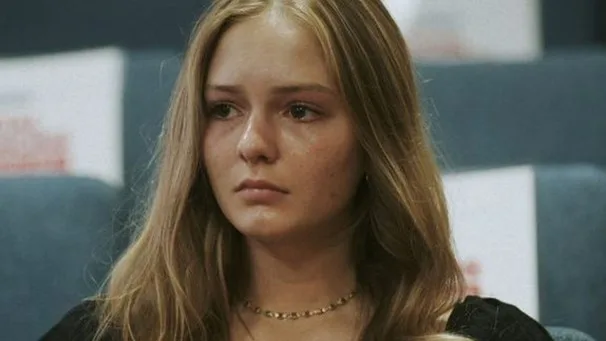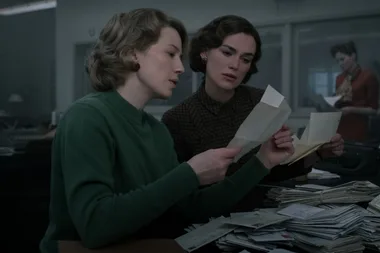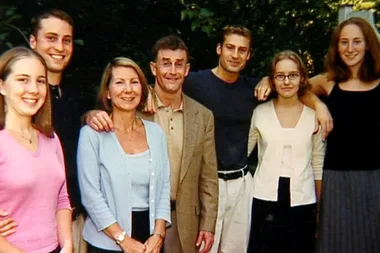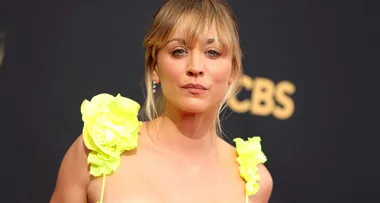If you’re a true crime fanatic, you’ve likely already devoured Netflix’s latest addition, Take Care Of Maya.
The harrowing tale chronicles 10-year-old Maya Kowalski, and her parents Beata and Jack, as they seek help for their daughter’s diagnosis of complex regional pain syndrome (CRPS).
But instead of treatment for Maya, the documentary shows doctors diagnosing Beata with Munchausen by proxy, accusing both parents of abusing their daughter, and signalling the start of a new nightmare for the Kowalski family. Maya’s parents were refused custody of their daughter, and the documentary goes on to show this ultimately lead to Beata’s suicide.
Now, the Kowalski family have finally achieved justice, with Take Care Of Maya landing on our screens in the midst of its real-life court case, which reached a verdict just last week.
Below, everything we know about the true story behind Take Care Of Maya.
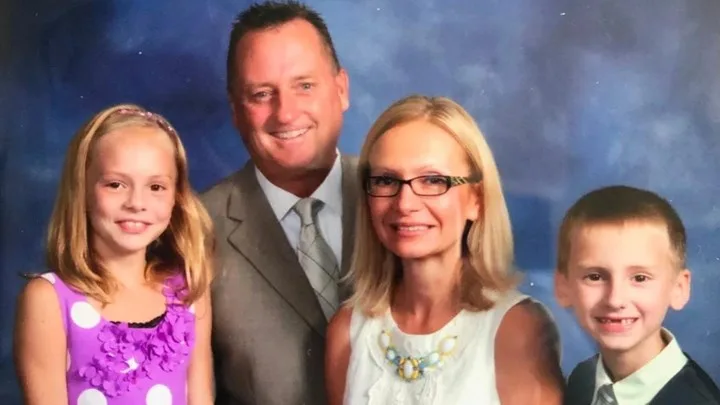
What Is Take Care Of Maya About?
In 2015, when Maya was just 9 years old, she began experiencing a series of unexplained symptoms, including asthma attacks, headaches, lesions on her limbs, and foot cramping.
While several doctors struggled to find the cause of Maya’s pain, according to People, her mother learned of complex regional pain syndrome, a disease consistent with Maya’s symptoms. The Kowalski family then turned to Dr. Anthony Kirkpatrick, who specialises in CRPS, and began treating Maya with infusions of the anaesthetic drug ketamine. When Maya’s symptoms persisted, she was put on a five-day “ketamine coma” in which, per People, “the nervous system [is] flooded with a high dose of the drug,” causing it to “reset.”
Reflecting on the treatment in 2023, Maya, now 17, told the publication that she “felt amazing,” following the ketamine coma.
In October 2016, Maya was rushed to hospital by her father after she woke in the middle of the night complaining of severe abdominal pain. Take Care Of Maya follows her stay in hospital from this time until January 13, 2017.
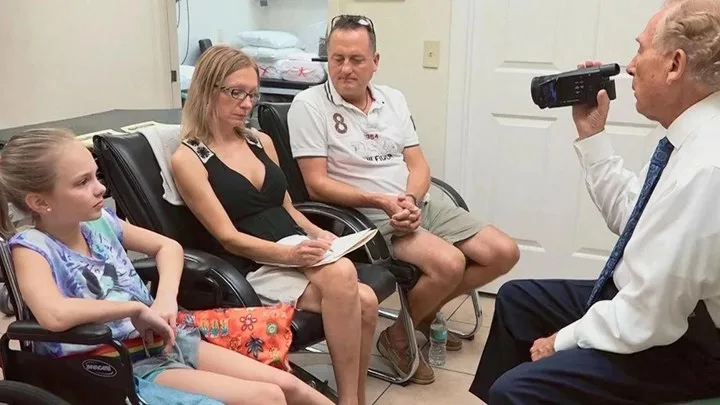
In the documentary, Beata asked doctors to administer a high dose of ketamine for her daughter’s symptoms. This request raised alarms amongst hospital staff. Following this, according to The Cut, the family were met by a social worker named Debra Hansen, who “agreed that it was strange for Beata to demand pain medication before allowing [routine testing].” Hansen filed a formal notice of potential neglect with the state.
Authorities reportedly discarded the report for a lack of evidence, but the hospital remained on alert about Maya’s case.
According to The Cut, this lead to Dr Sally Smith, a doctor with more than 30 years of experience in child-abuse paediatrics, investigating Maya’s medical records. On October 13, 2016, Smith filed a report chronicling Maya’s extensive medical history, and formally diagnosing her mother with Munchausen syndrome by proxy. As a result, Maya was placed in state custody, with an order directing that she be kept in the hospital, and her parents were forbidden to see her.
Despite being separated from her parents, Maya continued to report extreme pain, but, per The Cut, Smith was still not convinced of her diagnosis. According to the publication, she instructed Maya’s nurses to videotape her, to try and catch instances where her behaviour misaligned with her symptoms. In December, it was reported that Maya’s diagnosis was changed to factitious disorder – in other words, Maya was accused of making up her illness.
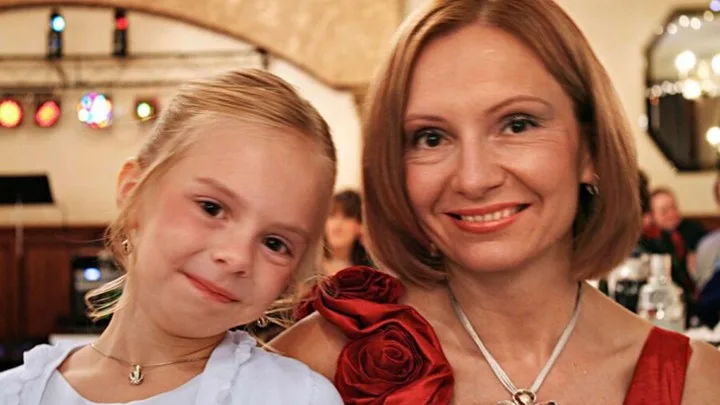
In January 2017, after spending Christmas, New Years and her 11th birthday in hospital (more than 87 days), Maya, Jack, and Beata attended a court hearing to determine her custody status. But their requests to be reunited were denied.
The following day, Beata died by suicide. In a note discovered after her death, she wrote, “I’m sorry, but I no longer can take the pain [of] being away from Maya and being treated like a criminal. I cannot watch my daughter suffer in pain and keep getting worse.”
At the family’s next court hearing, the judge ruled that Jack could take Maya to be assessed by a doctor who specialised in CRPS. This doctor found that Maya’s symptoms and response to treatments were consistent with CRPS, and that the diagnoses of Munchausen by proxy and factitious disorder were “incorrect,” Haworth remanded Maya back to Jack’s custody. As a result, Maya was returned to Jack’s custody.
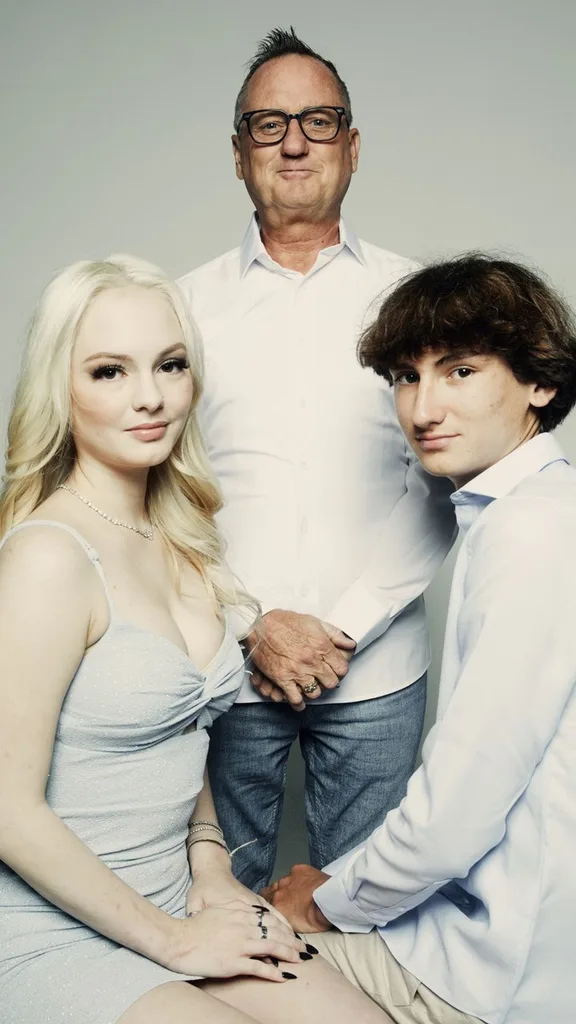
What Happened To Maya Kowalski?
According to The Cut, when she was discharged from hospital, Maya “weighed less than she did when she was admitted”, and was too weak to sit up properly on her own. But after a year and a half of physical therapy and aqua therapy, she was able to walk unassisted for the first time in four years.
Six years after Beata Kowalski’s death, a jury ordered Johns Hopkins All Children’s Hospital (where Maya was treated) to pay $211 million in compensatory damages and $50 million in punitive damages to the Kowalski family.
Maya took to the stands throughout the lengthy trial. In her testimony, she recalled only being given an hour with her father after learning of her mother’s suicide. “If I’m being completely honest, it was actually so unbelievably cruel, the amount of time they allocated for me to spend with my family after hearing such awful news,” she said.
Outside the courtroom, Maya told reporters, “For the first time, I feel like I got justice.”
The legal team for Johns Hopkins All Children’s Hospital contacted marie claire Australia wishing to express that despite the court findings they stand behind their actions relating to mandatory reporting in Florida and the care they provided to Maya.
“We are determined to defend the vitally important obligation of mandatory reporters to report suspected child abuse and protect the smallest and most vulnerable among us. The facts and the law remain on our side, and we will continue to defend the lifesaving and compassionate care provided to Maya Kowalski by the physicians, nurses and staff of Johns Hopkins All Children’s Hospital and the responsibility of all mandatory reporters in Florida to speak up if they suspect child abuse,” defense counsel Howard Hunter said.
